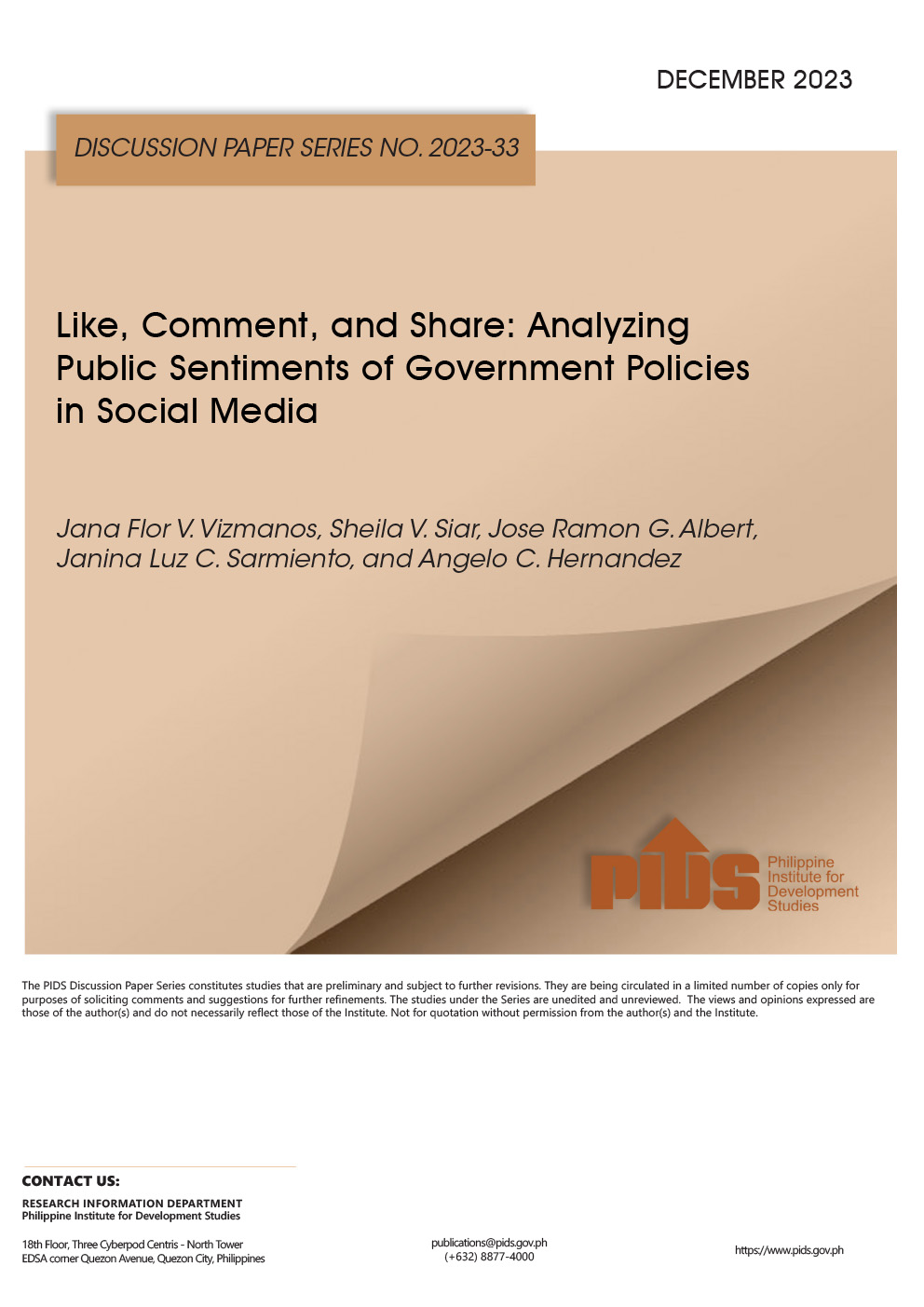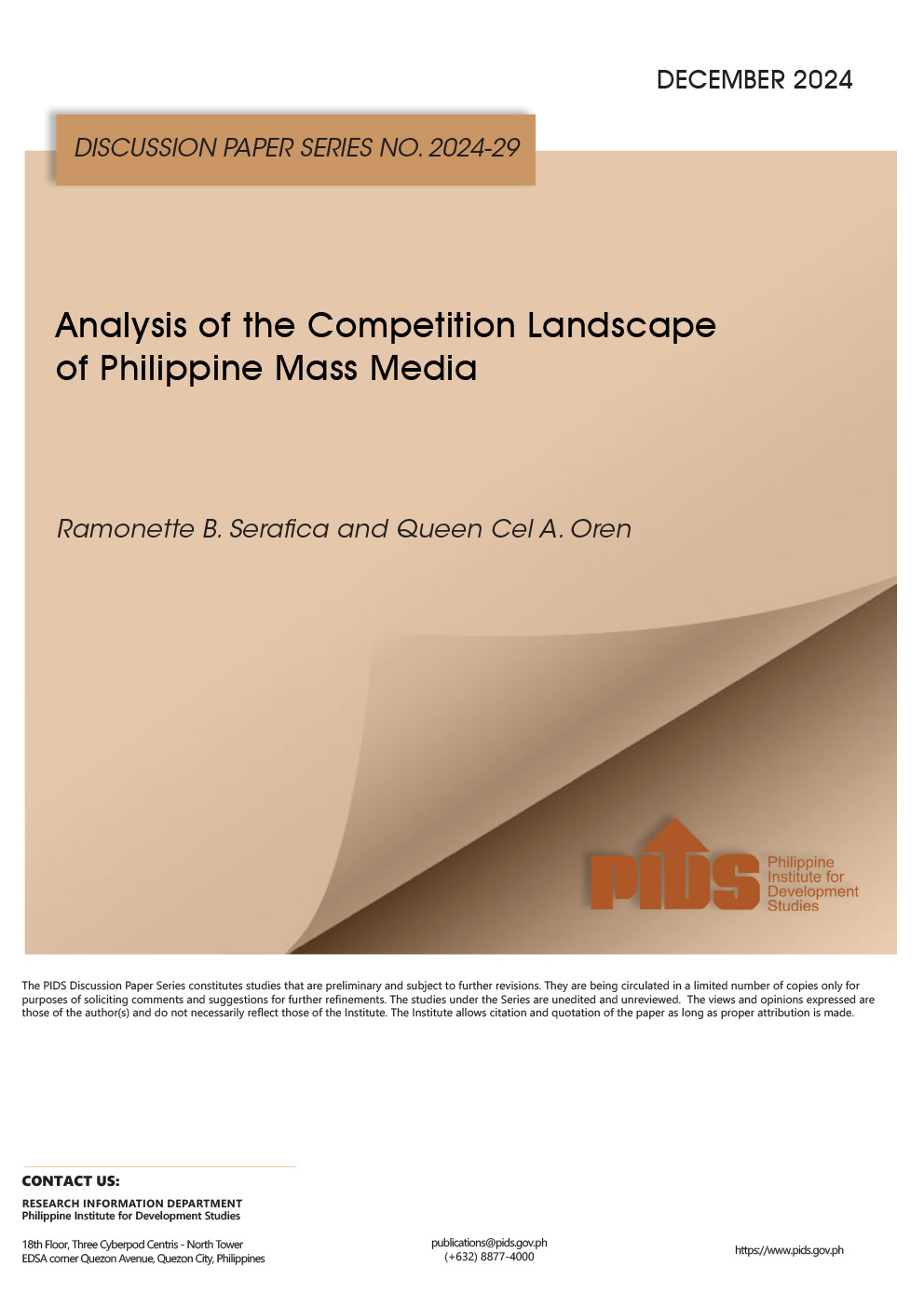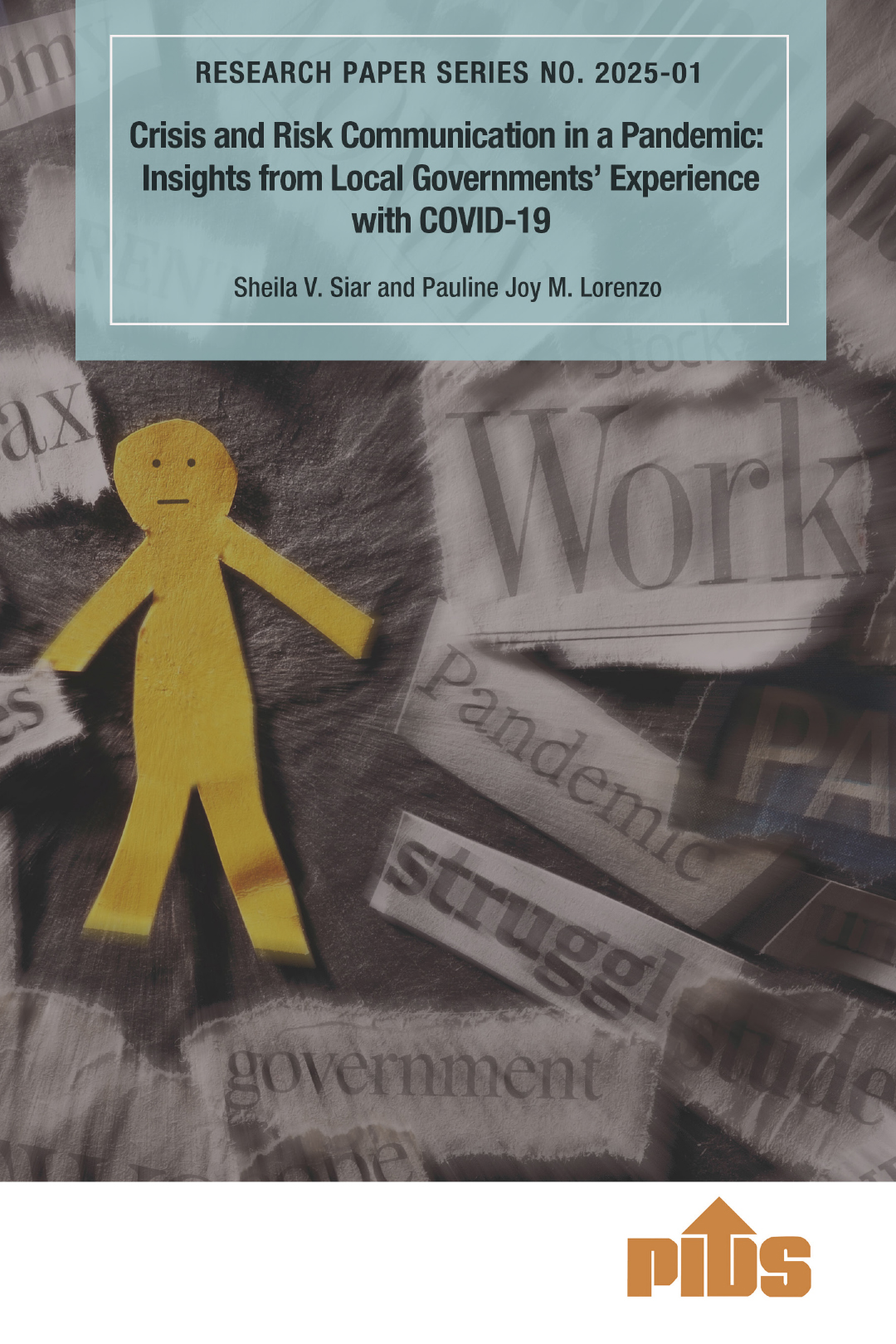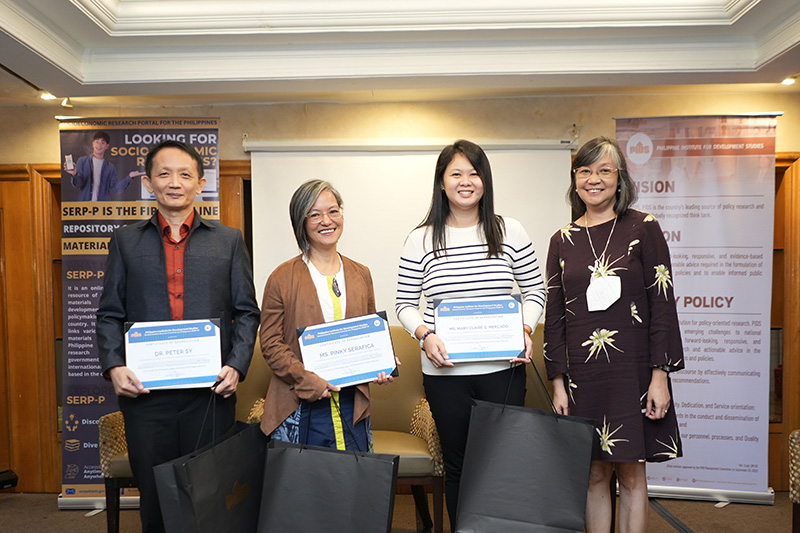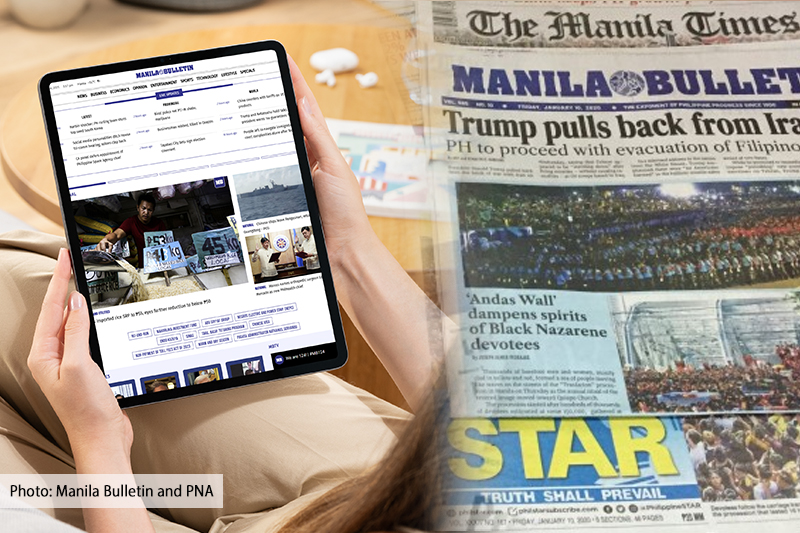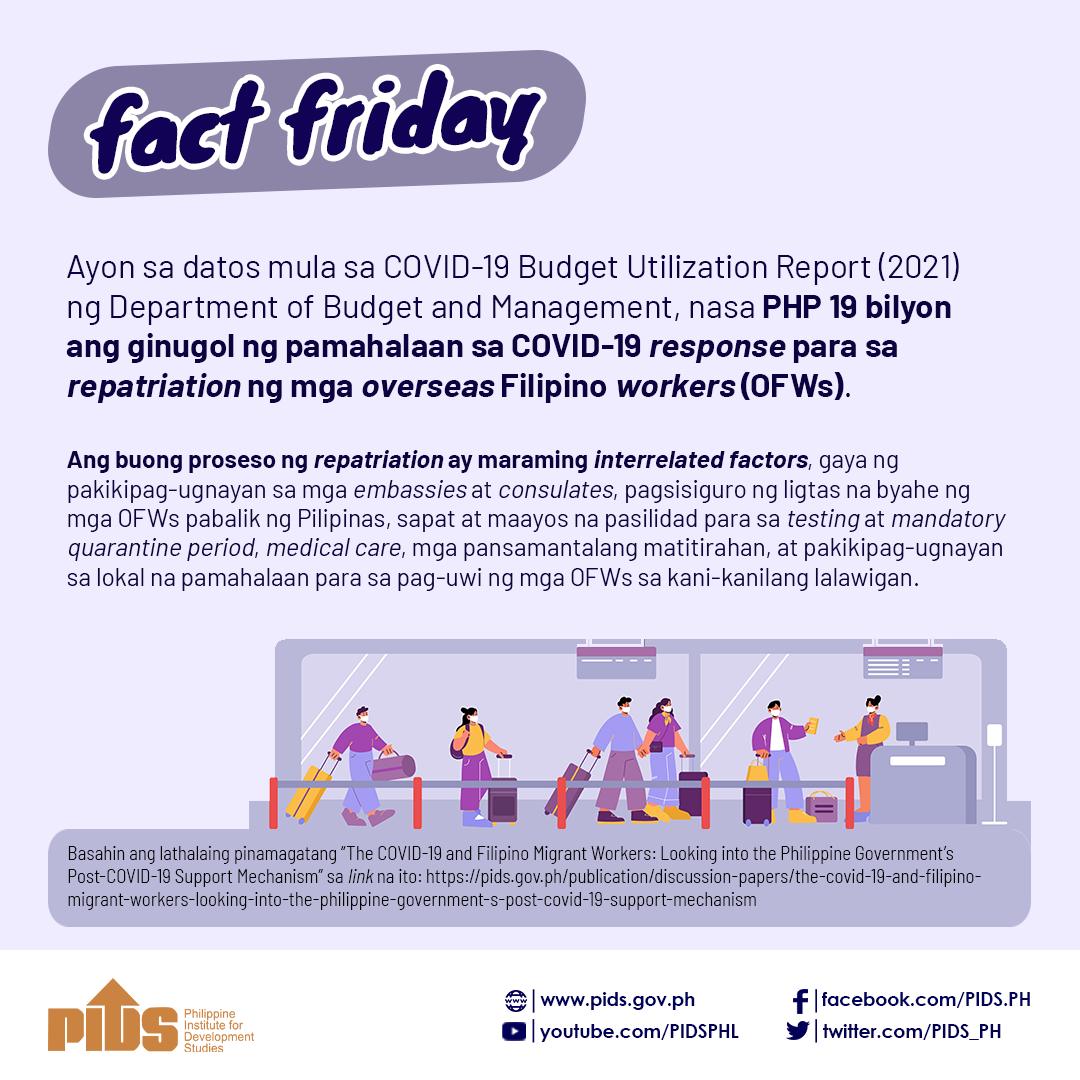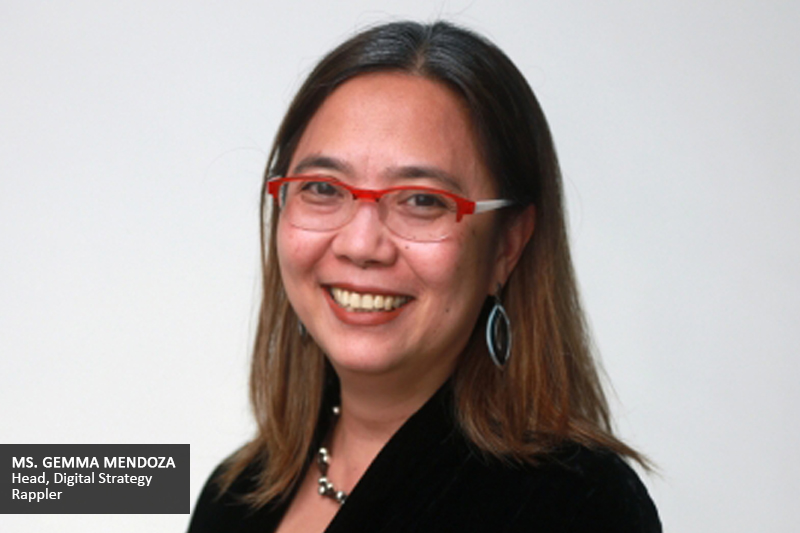
In the age of social media, where fake news, misinformation, and disinformation are prevalent, fact-checking posts on online platforms, such as Facebook and YouTube, goes a long way.
This was emphasized by Gemma Mendoza, head of Digital Strategy at Philippine online news organization Rappler, during a webinar recently organized by state think tank Philippine Institute for Development Studies (PIDS). The webinar is part of the Sixth Biennial Meeting of the Socioeconomic Research Portal for the Philippines (SERP-P) Network hosted by the Institute. SERP-P is an online knowledge resource of socioeconomic studies produced by PIDS and more than 50 member-institutions comprising the SERP-P Network.
According to Mendoza, Rappler started its fact-checking initiatives around 2016 when it “saw the rise of disinformation in cyberspace”. She said Rappler has been working with various sectors, including the private sector, academe, and civil society, and has also become a partner of international fact-checking networks.
When the COVID-19 pandemic struck, Mendoza said they worked with global fact-checkers from the CoronaVirus Fact Check Alliance.
“We ramped up [our fact-checking initiatives] in the past months because of the rise in false claims related to health information… The [CoronaVirus Fact Check Alliance] has since spotted and fact-checked almost 10,000 claims in relation to COVID-19 and COVID-19 response,” Mendoza explained.
“It became a concern even for public health experts. The World Health Organization (WHO) and the [United Nations] quoted the ‘infodemic’, which is seen as a parallel problem to the pandemic and is affecting pandemic response,” Mendoza added. The WHO defines the term ‘infodemic’ as the overabundance of information—some accurate and some not—that makes it difficult for people to find trustworthy sources and reliable guidance when they need it.
Beyond fact-checking, it is important to cascade results to the public, Mendoza pointed out. Rappler did this by doing fact-checking videos in Taglish, organizing webinars on fact-checking methodologies and media and information literacy, and engaging the public, especially those passionate about fact-checking, through community groups on Facebook.
To avoid being a victim of fake news, misinformation, and disinformation, Mendoza calls on the public to “watch their use of digital media and beware of attempts to manipulate”.
“We remind them to learn to detect dubious claims and fact-check what they share. We remind them to report abuse and dubious claims and help spread awareness…[and] call out platforms for inaction and abuse,” Mendoza said.
Finally, she emphasized the importance of collaboration in fighting disinformation.
“It is important for everybody to collaborate because [disinformation] is a complex problem and it is something that requires complex solutions,” Mendoza said.
You may watch the webinar at https://www.facebook.com/PIDS.PH/videos/340472834300008. For more videos of PIDS events, go to https://www.pids.gov.ph/videos.
This was emphasized by Gemma Mendoza, head of Digital Strategy at Philippine online news organization Rappler, during a webinar recently organized by state think tank Philippine Institute for Development Studies (PIDS). The webinar is part of the Sixth Biennial Meeting of the Socioeconomic Research Portal for the Philippines (SERP-P) Network hosted by the Institute. SERP-P is an online knowledge resource of socioeconomic studies produced by PIDS and more than 50 member-institutions comprising the SERP-P Network.
According to Mendoza, Rappler started its fact-checking initiatives around 2016 when it “saw the rise of disinformation in cyberspace”. She said Rappler has been working with various sectors, including the private sector, academe, and civil society, and has also become a partner of international fact-checking networks.
When the COVID-19 pandemic struck, Mendoza said they worked with global fact-checkers from the CoronaVirus Fact Check Alliance.
“We ramped up [our fact-checking initiatives] in the past months because of the rise in false claims related to health information… The [CoronaVirus Fact Check Alliance] has since spotted and fact-checked almost 10,000 claims in relation to COVID-19 and COVID-19 response,” Mendoza explained.
“It became a concern even for public health experts. The World Health Organization (WHO) and the [United Nations] quoted the ‘infodemic’, which is seen as a parallel problem to the pandemic and is affecting pandemic response,” Mendoza added. The WHO defines the term ‘infodemic’ as the overabundance of information—some accurate and some not—that makes it difficult for people to find trustworthy sources and reliable guidance when they need it.
Beyond fact-checking, it is important to cascade results to the public, Mendoza pointed out. Rappler did this by doing fact-checking videos in Taglish, organizing webinars on fact-checking methodologies and media and information literacy, and engaging the public, especially those passionate about fact-checking, through community groups on Facebook.
To avoid being a victim of fake news, misinformation, and disinformation, Mendoza calls on the public to “watch their use of digital media and beware of attempts to manipulate”.
“We remind them to learn to detect dubious claims and fact-check what they share. We remind them to report abuse and dubious claims and help spread awareness…[and] call out platforms for inaction and abuse,” Mendoza said.
Finally, she emphasized the importance of collaboration in fighting disinformation.
“It is important for everybody to collaborate because [disinformation] is a complex problem and it is something that requires complex solutions,” Mendoza said.
You may watch the webinar at https://www.facebook.com/PIDS.PH/videos/340472834300008. For more videos of PIDS events, go to https://www.pids.gov.ph/videos.

